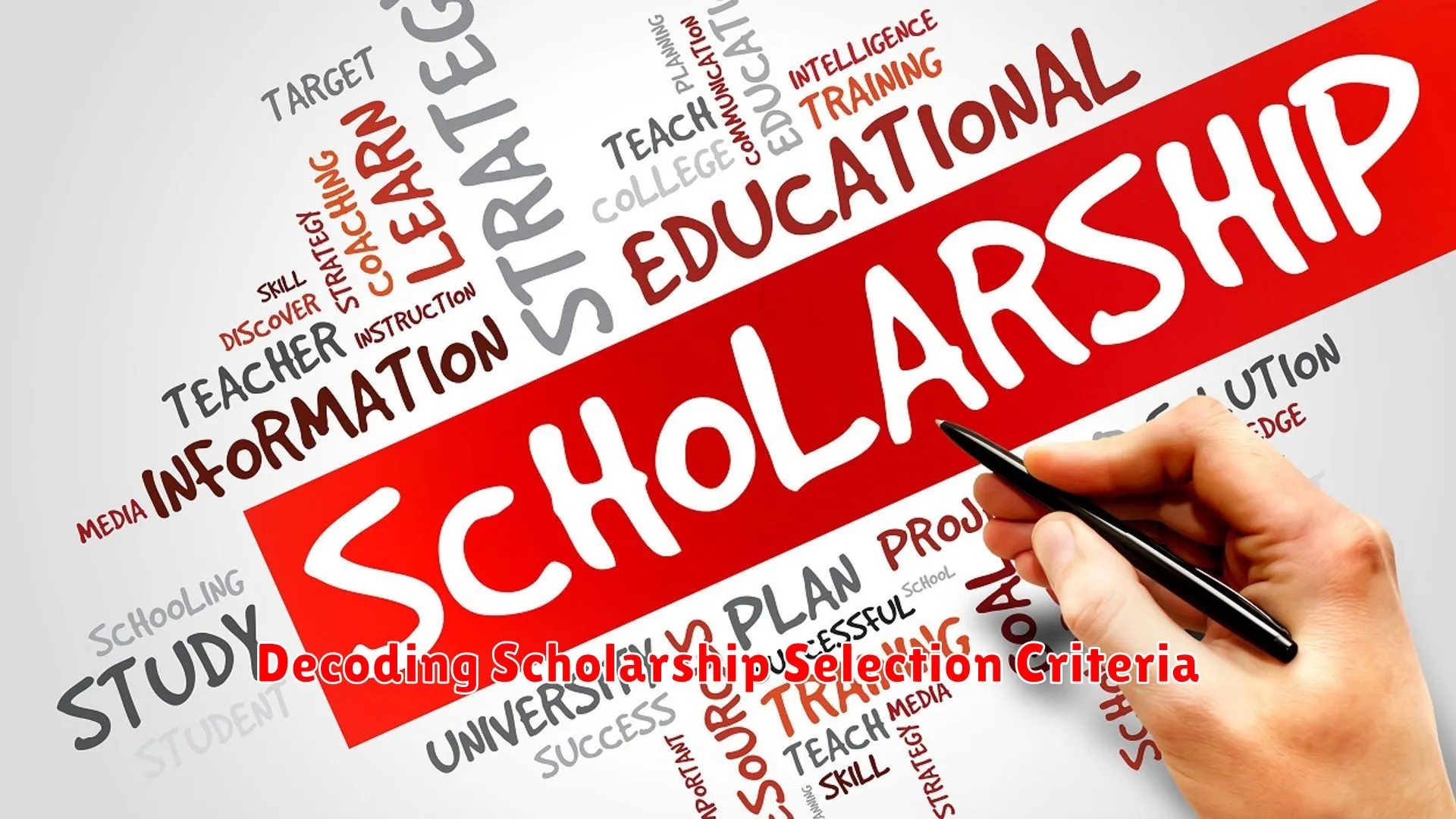Unlock the secrets to securing European scholarships with our comprehensive guide. From application tips to insider strategies, discover how to maximize your chances of success in navigating the competitive world of scholarship opportunities in Europe.
Decoding Scholarship Selection Criteria

When it comes to applying for European scholarships, understanding the selection criteria is crucial for increasing your chances of success. Scholarship selection criteria can vary between programs and institutions, but there are some common factors that are often considered:
1. Academic Excellence
Academic performance is a significant factor in scholarship selection. Most institutions look for candidates with a strong academic background, high grades, and a passion for learning. Be prepared to showcase your academic achievements through transcripts, certificates, and recommendation letters.
2. Research Proposal
For research-based scholarships, a well-thought-out research proposal is essential. Your proposal should clearly outline your research project, objectives, methodology, and expected outcomes. Demonstrating a clear research plan can greatly impress the selection committee.
3. Extracurricular Activities
Participation in extracurricular activities such as volunteering, internships, and community service can demonstrate your leadership skills, teamwork abilities, and commitment to personal development. Highlighting these experiences in your application can set you apart from other candidates.
4. Language Proficiency
Many European scholarships require applicants to have proficiency in the language of instruction. Be prepared to provide language proficiency test scores such as IELTS or TOEFL to demonstrate your ability to study and communicate effectively in the program’s language.
5. Personal Statement
Your personal statement plays a crucial role in showcasing your motivation, goals, and aspirations. Use this opportunity to explain why you are the ideal candidate for the scholarship and how it aligns with your academic and career objectives.
6. Letters of Recommendation
Letters of recommendation from professors, employers, or mentors can provide insights into your character, work ethic, and potential for success. Choose recommenders who can speak to your skills and qualifications relevant to the scholarship you are applying for.
By understanding and addressing these key scholarship selection criteria, you can enhance your application and stand out as a strong candidate for European scholarships.
Crafting a Winning Personal Statement

When applying for European scholarships, one of the crucial elements that can significantly impact your chances of success is your personal statement. This document offers you the opportunity to showcase your unique qualities, experiences, and aspirations to the scholarship committee. Here are some key strategies to craft a standout personal statement:
1. Tailor Your Statement to the Scholarship
Before diving into writing your personal statement, carefully review the requirements and values of the specific scholarship you are applying for. Customizing your statement to align with the scholarship’s objectives and values can demonstrate your genuine interest and suitability for the program.
2. Highlight Your Achievements and Goals
Use your personal statement as a platform to highlight your academic accomplishments, extracurricular activities, and career goals. Be concise yet impactful in presenting your achievements and illustrating how they have prepared you for the scholarship opportunity.
3. Showcase Your Unique Narrative
What sets you apart from other applicants is your unique story. Share personal anecdotes, challenges you’ve overcome, and experiences that have shaped your ambitions. Expressing your individuality and authenticity can make your personal statement memorable.
4. Demonstrate Passion and Commitment
Convey your passion for your field of study or chosen career path within your personal statement. Clearly articulate your motivations, goals, and how receiving the scholarship will contribute to your personal and professional development.
5. Seek Feedback and Revise
After drafting your personal statement, seek feedback from mentors, teachers, or peers. Revision is key to refining your statement and ensuring clarity, coherence, and relevance. Make sure your final draft is polished and error-free.
By following these tips and dedicating time to crafting a compelling personal statement, you can enhance your chances of securing a coveted European scholarship. Remember, your personal statement is your opportunity to leave a lasting impression and demonstrate why you are the ideal candidate for the scholarship.
Tips for Effective Scholarship Networking

When it comes to pursuing European scholarships, networking can significantly enhance your chances of success. Here are some valuable tips to help you effectively network for scholarships in Europe:
- Attend Events: Participate in scholarship fairs, information sessions, and networking events where you can connect with representatives from various scholarship programs and institutions.
- Utilize Online Platforms: Join online forums, social media groups, and professional networking sites to engage with current scholarship recipients, alumni, and experts in the field.
- Build Relationships: Establish meaningful connections with professors, mentors, and professionals who can provide guidance, recommendations, and insights into scholarship opportunities.
- Prepare Elevator Pitch: Craft a concise and compelling elevator pitch that highlights your academic achievements, aspirations, and why you are a deserving candidate for scholarships.
- Seek Mentorship: Find a mentor or advisor who can offer support, advice, and help refine your scholarship applications and networking strategies.
By implementing these tips and actively engaging in scholarship networking opportunities, you can increase your chances of securing European scholarships and pursuing your academic dreams.

After successfully securing a European scholarship, a world of opportunities opens up for you. Navigating these post-scholarship options can be both exciting and overwhelming. Here’s a guide to help you make the most of your scholarship success:
1. Engage in Networking
Networking is key to leveraging your scholarship experience. Connect with fellow scholars, alumni, and professionals in your field. Attend conferences, workshops, and seminars to expand your network and gain insights into various career paths.
2. Seek Professional Development
Take advantage of professional development programs offered through your scholarship organization or other reputable institutions. Enhancing your skills and knowledge will make you more competitive in the job market.
3. Explore Job Opportunities
Stay updated on job opportunities in your field. Utilize career services at your university or scholarship organization to access exclusive job listings. Tailor your resume and cover letter to highlight your scholarship experience and skills.
4. Consider Further Education
If you’re passionate about a specific academic field, consider pursuing further education. Whether it’s a master’s degree, PhD, or specialized certification, your scholarship can serve as a stepping stone to higher education.
5. Give Back Through Mentorship
Mentorship is a rewarding way to give back and support aspiring scholars. Share your scholarship journey, offer guidance, and mentor students who are embarking on similar paths. Your insights can make a significant impact on their success.
Conclusion
Securing European scholarships requires diligence, strategic planning, and understanding specific application requirements. By leveraging resources, making strong connections, and highlighting unique strengths, aspiring scholars can increase their chances of success.

